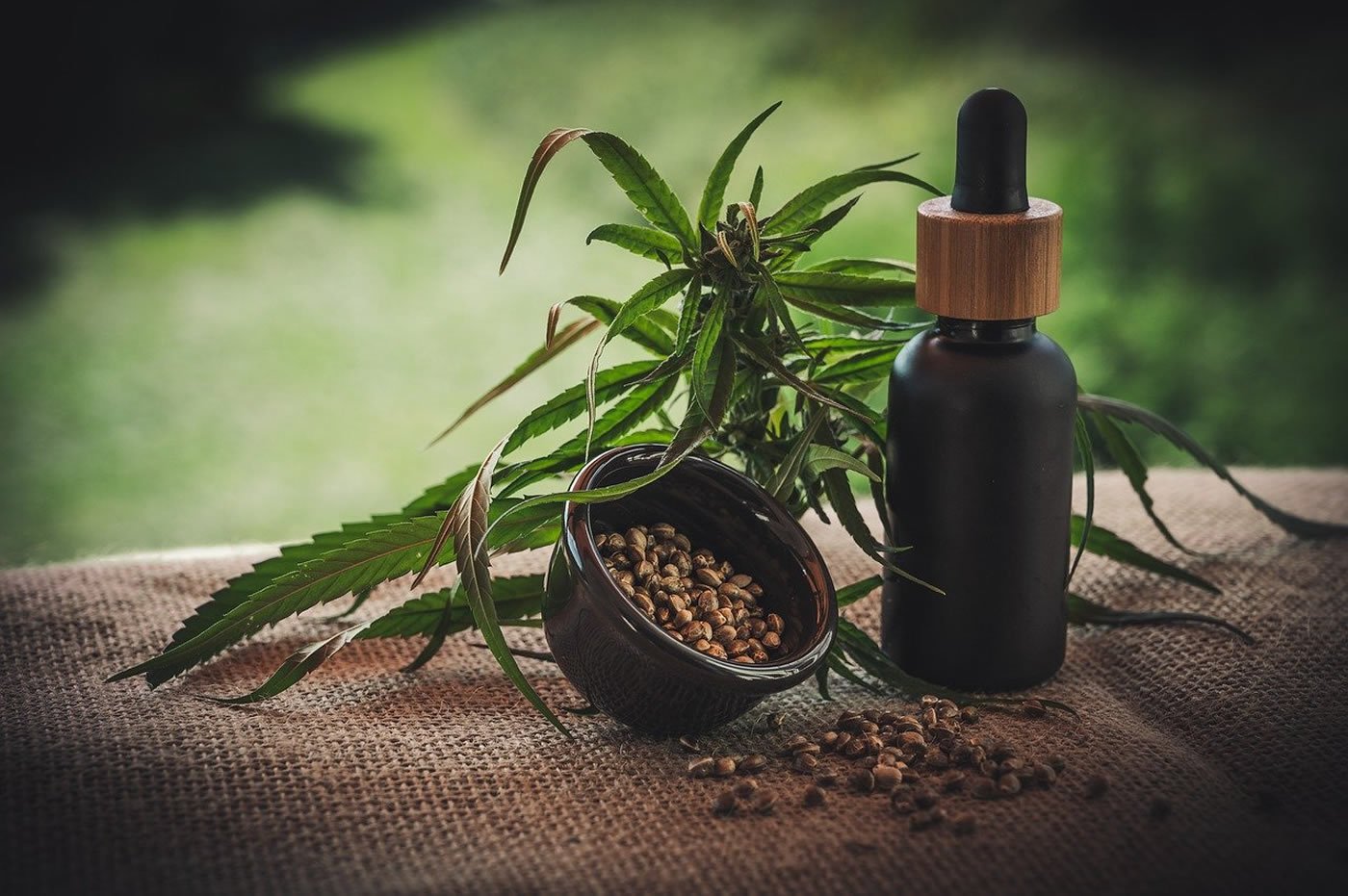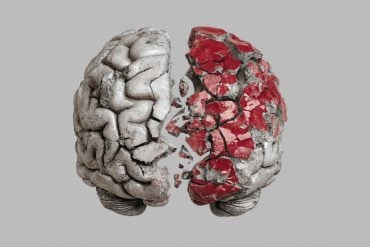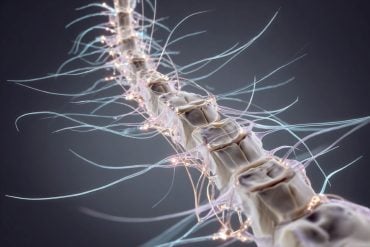Summary: Hemp oil reduced mechanical pain sensitivity 10-fold within seven hours in mice with chronic postoperative neuropathic pain.
Source: University of New Mexico
Researchers examine the effectiveness of consuming hemp oil extracted from the whole Cannabis plant using a chronic neuropathic pain animal model. Researchers at The University of New Mexico (UNM) showed that legal Cannabis hemp oil reduced mechanical pain sensitivity 10-fold for several hours in mice with chronic post-operative neuropathic pain.
Distinguished from its still largely criminally prohibited cousin, “hemp” refers to Cannabis plants with less than 0.3 percent tetrahydrocannabinol (THC) per mass. Hemp is now federally legal to produce and consume in most regions throughout the United States (U.S) as a result of the Hemp Farming Act, proposed by the U.S. Congress and signed into law by President Donald Trump in 2018.
This major breakthrough in cannabis prohibition now enables millions of Americans the ability to access a natural, effective, and relatively safe alternative option for treating chronic pain. Conventional pharmacological drugs, namely opioids, are driving the leading form of preventable deaths and conventional medical errors are the third leading cause of death in the U.S.
The University of New Mexico has conducted a series of recent studies testing the effectiveness and safety of consuming the Cannabis plant, but this is the first study measuring the therapeutic potential of legal hemp oil with low THC levels.
“Cannabis plants with low THC are still psychoactive, but tend to result in less psychedelic experiences, while still offering profound and often immediate relief from symptoms such as pain, anxiety, and depression,” says co-researcher, Dr. Jacob Miguel Vigil, associate professor in the UNM Psychology Department.
Using a chronic neuropathic pain model that exposes mice to post-operative neuropathic pain equivalent to several years of chronic pain in human clinical patients, the researchers were able to examine how hemp oil influences momentary pain sensitivity to the affected region. For several hours after Cannabis consumption the mice demonstrated effective pain relief, approaching the mechanical pain sensitivity of naïve control mice that did not undergo the surgical operation.
“Our lab utilizes a unique nerve injury model mimicking human neuropathic pain that has allowed demonstration of hemp’s reversal of the pain related behavior” said one of the lead investigators, Dr. Karin N. Westlund, Department of Anesthesiology, their article titled “The Therapeutic Effectiveness of Full Spectrum Hemp Oil Using a Chronic Neuropathic Pain Model,” published in the journal Life.
Studies in animals can be superior to clinical trials because they circumvent human biases and expectancy effects, or perceptual and cognitive reactions to enrollment in cannabis-themed experiments. Several studies measuring the effects of cannabis in humans observe patients reporting psychedelic experiences, whether or not they received the active cannabis agent, otherwise referred to as the ‘placebo effect.’
The study examined the effectiveness of “LyFeBaak” hemp oil, produced by Organic-Energetic Solutions, which has been available for legal purchase in New Mexico since 2019. “We grow hemp that is optimized to potentiate the plants utmost health and vitality through hypermineralization techniques, rather than merely plants that are grown in a state of fight-or-flight, which unfortunately is common in the cannabis industry. These techniques have enabled us to produce hemp products that patients swear are effective for treating dozens of mental and physical health conditions. The new changes in hemp laws are now allowing us to test these claims,” adds co-author and hemp grower, Anthony L. Ortiz.
“Hemp plants contain numerous therapeutic constituents that likely contribute to analgesic responses, including terpenes and flavonoids, which in theory, work together like members of a symphony, often described as the entourage effect,” says fellow researcher, Jegason P. Diviant. Several clinical investigations have shown that medications based on synthetic cannabis analogues and isolated compounds tend to offer lower reported symptom relief and a greater number of negative side effects as compared to whole plant, or “full-spectrum” Cannabis flower and plant-based extracts.
The authors do caution that few studies exist on the long-term use of hemp oil, due mostly to historical federal prohibition laws in the U.S. “However, this is an extremely exciting time in modern medical discovery, because the average citizen now has legal access to a completely natural and effective medication that can be easily and cheaply produced, simply by sticking a seed in the ground and caring for it as you would any other important part of your life,” says Vigil.
Funding: This investigation was supported in part by private donations from individuals to The University of New Mexico Medical Cannabis Research.
About this neuroscience research article
Source:
University of New Mexico
Media Contacts:
Jacob Vigil – Universit yof New Mexico
Image Source:
The image is in the public domain.
Original Research: Open access
“The Therapeutic Effectiveness of Full Spectrum Hemp Oil Using a Chronic Neuropathic Pain Model”. by Jacob Miguel Vigil et al.
Life doi:10.3390/life10050069
Abstract
The Therapeutic Effectiveness of Full Spectrum Hemp Oil Using a Chronic Neuropathic Pain Model
Background: Few models exist that can control for placebo and expectancy effects commonly observed in clinical trials measuring ‘Cannabis’ pharmacodynamics. We used the Foramen Rotundum Inflammatory Constriction Trigeminal Infraorbital Nerve injury (FRICT-ION) model to measure the effect of “full-spectrum” whole plant extracted hemp oil on chronic neuropathic pain sensitivity in mice.
Methods: Male BALBc mice were submitted to the FRICT-ION chronic neuropathic pain model with oral insertion through an incision in the buccal/cheek crease of 3 mm of chromic gut suture (4-0). The suture, wedged along the V2 trigeminal nerve branch, creates a continuous irritation that develops into secondary mechanical hypersensitivity on the snout. Von Frey filament stimuli on the mouse whisker pad was used to assess the mechanical pain threshold from 0–6 h following dosing among animals (n = 6) exposed to 5 μL of whole plant extracted hemp oil combined with a peanut butter vehicle (0.138 mg/kg), the vehicle alone (n = 3) 7 weeks post-surgery, or a naïve control condition (n = 3).
Results: Mechanical allodynia was alleviated within 1 h (d = 2.50, p < 0.001) with a peak reversal effect at 4 h (d = 7.21, p < 0.001) and remained significant throughout the 6 h observation window. There was no threshold change on contralateral whisker pad after hemp oil administration, demonstrating the localization of anesthetic response to affected areas.
Conclusion: Future research should focus on how whole plant extracted hemp oil affects multi-sensory and cognitive-attentional systems that process pain.
Feel Free To Share This Neurology News.








